Fagli or Phagli is one festivals in Himachal that I have tried to visit several times over the last 7-8 years but failed everytime. Nevertheless, this February, I finally managed it!
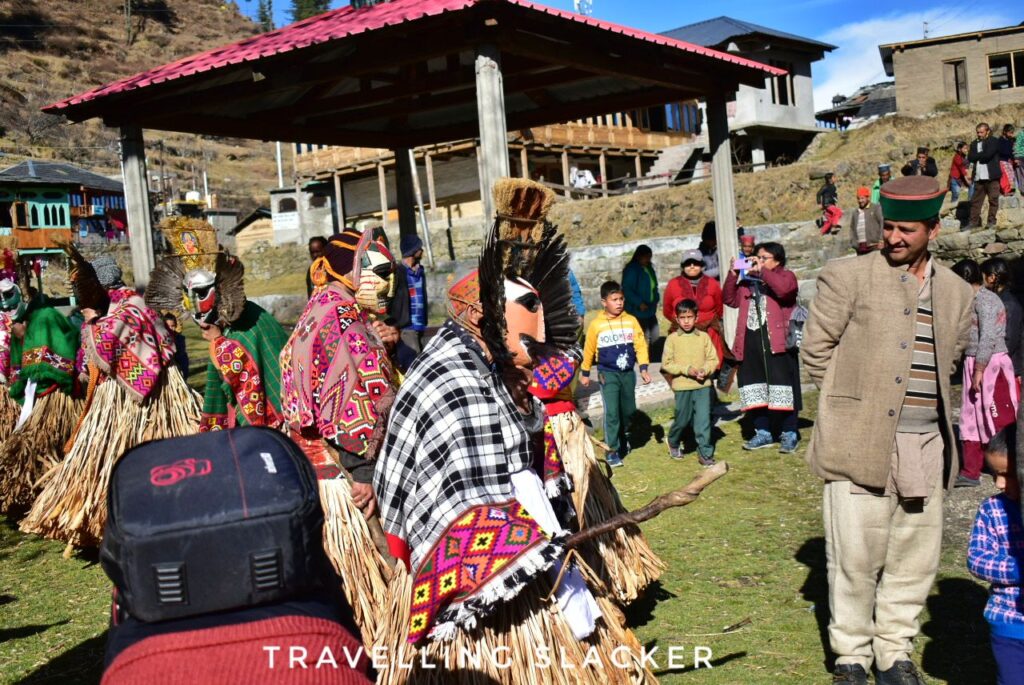
Just when I was planning it, I got an invite to Odisha, just a few days before Fagli. So, from scorching Odisha, we quickly rushed to take flight to Delhi and then took an overnight bus to Aut and then reached Gushaini to meet Vishwanath and his friends from Bangalore. I had sold them the idea of Fagli much earlier and they were already there. From that point, we hired a vehicle (the lone bus to Sharchi runs only in the evening) and finally made our way to Sharchi Village.
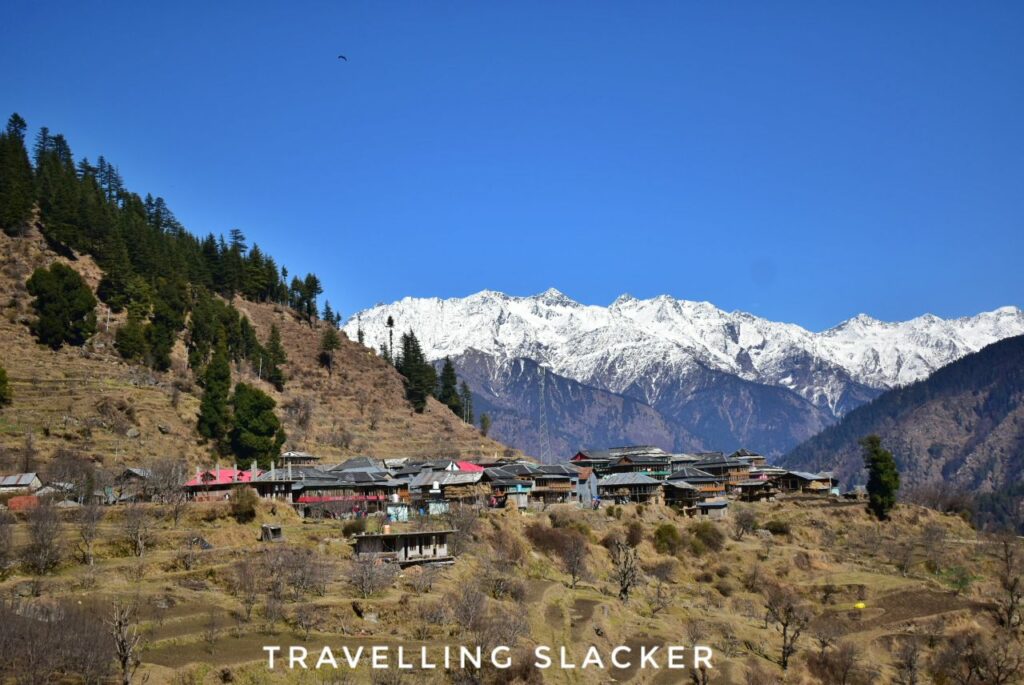
As a matter of fact, Fagli happens at various places of the inner Seraj region, especially Tirthan and Banjar Valleys. I could have just seen it near Jibhi, which is much easier to reach with regular public transport. However, I picked Sharchi because it was a village that I had not visited earlier. We got there by noon and settled down at the homestay which was arranged over a phonecall earlier. We were told that the festivities will begin soon and I could already hear mellow sound of drums from a distance.
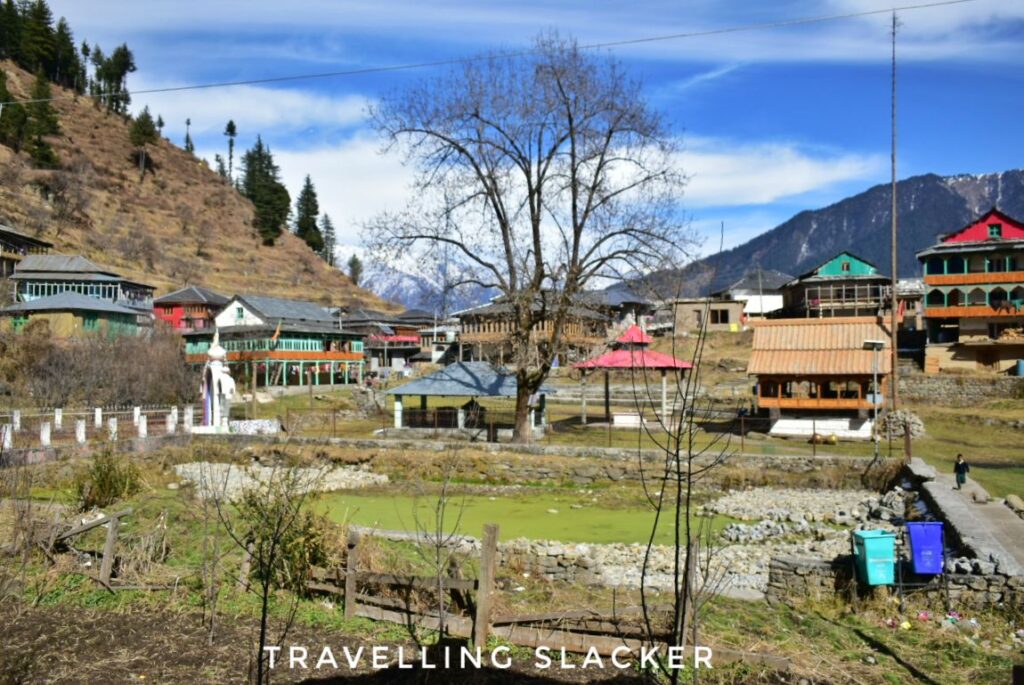
After a bit of rest and some tea, we slowly walked towards the center of the village. Sharchi is one of those large Kullu villages that reminds me of the likes of Deohari or Bhalyani. There’s a nice open ground in the middle, with Jagdamba Rishi temple and a pond which was dry in this season. Traditional wooden houses surround this area.
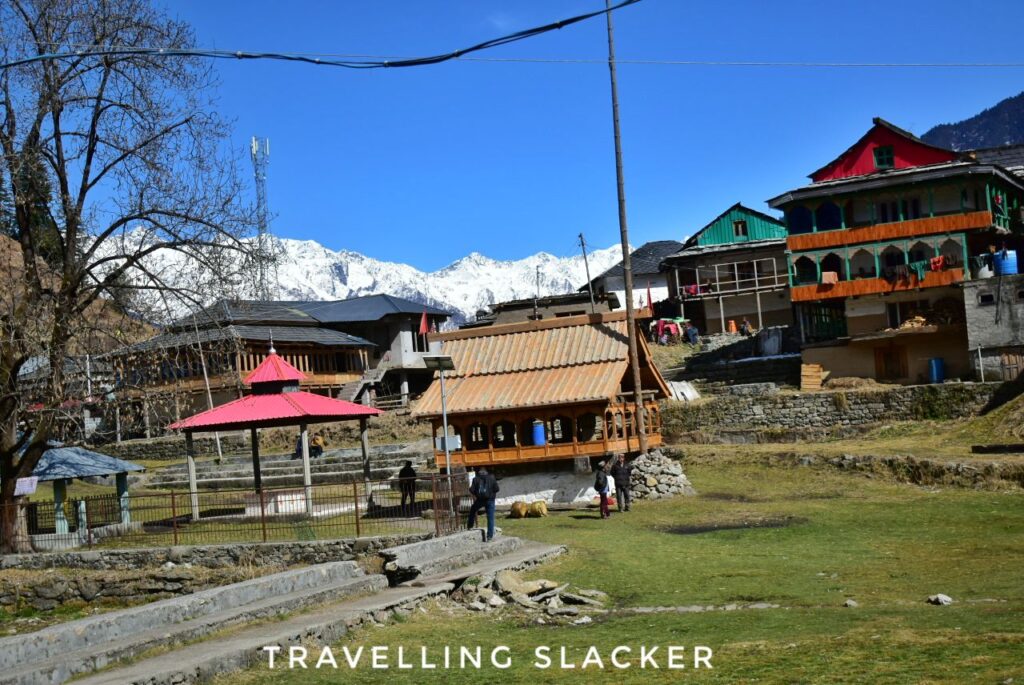
We inquired a few people about the masks and were told that the masks have been handed over by the previous generations and only certain families can take part in the process.
It’s very hard to trace the exact origin of these practices but in general I came accross various accounts describing it as a harvesting festival as well as something that indicates the advent of spring. Even I felt that it was pretty sunny and warm, in spite of the snowy peaks around. The winter truly ends around this time and one can spot layers of snow at the books and corners of the village.
The other interesting aspect of the mythology here is the Rakshasa lores of Kullu region. Some of these masked men represent the demons but it is more complex than that. It’ll not be right to simply describe it as a good vs evil story. It may be a representation of the conflict of indigenous deities and more mainstream Hindu deities that gradually arrived here with newer migrations. In the process, some of the native entities have also found a place in Hindu pantheon or composite entities have been created to fit into both narratives. Here’s a more detailed article by Tharah Kardu about the same.
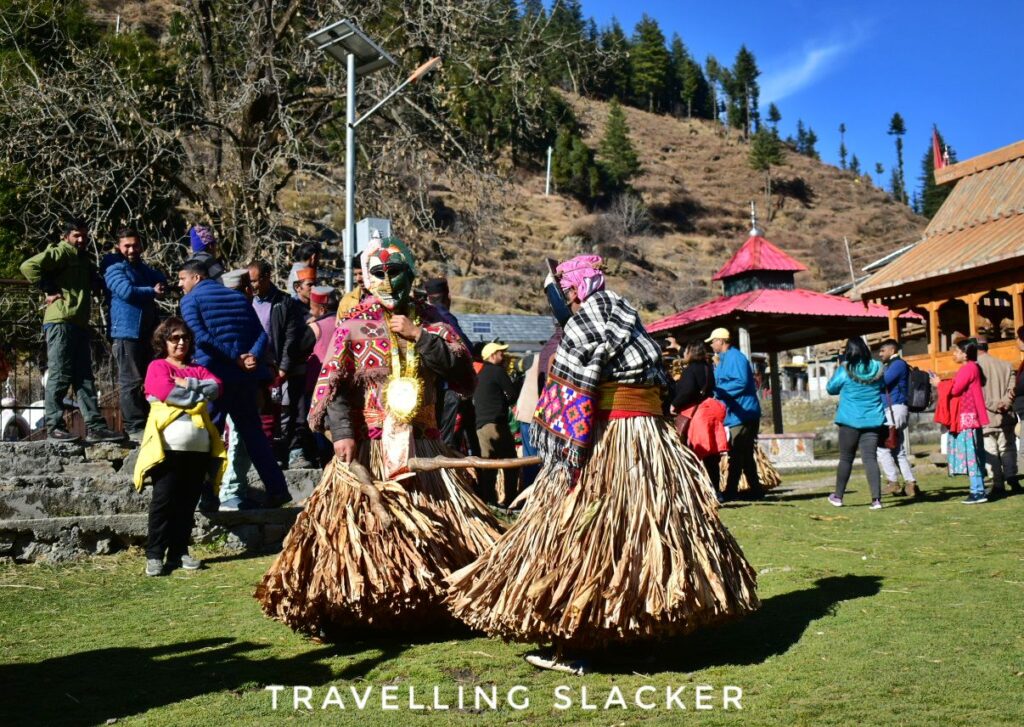
Anyway, coming back to the festival, the ritualistic dance started at around 3 pm. Dozens of masked dancers arrived from nowhere and started circling around the ground while grooving to primordial tunes of the local musicians. The villagers and tourists thronged the ground. I could see certain men, wearing colorful local attire and floral headgears, ready to perform. More strikingly, they were wearing a hand-knitted skirts made from dry grass, which is as distinctive a symbol of Fagli as the masks.
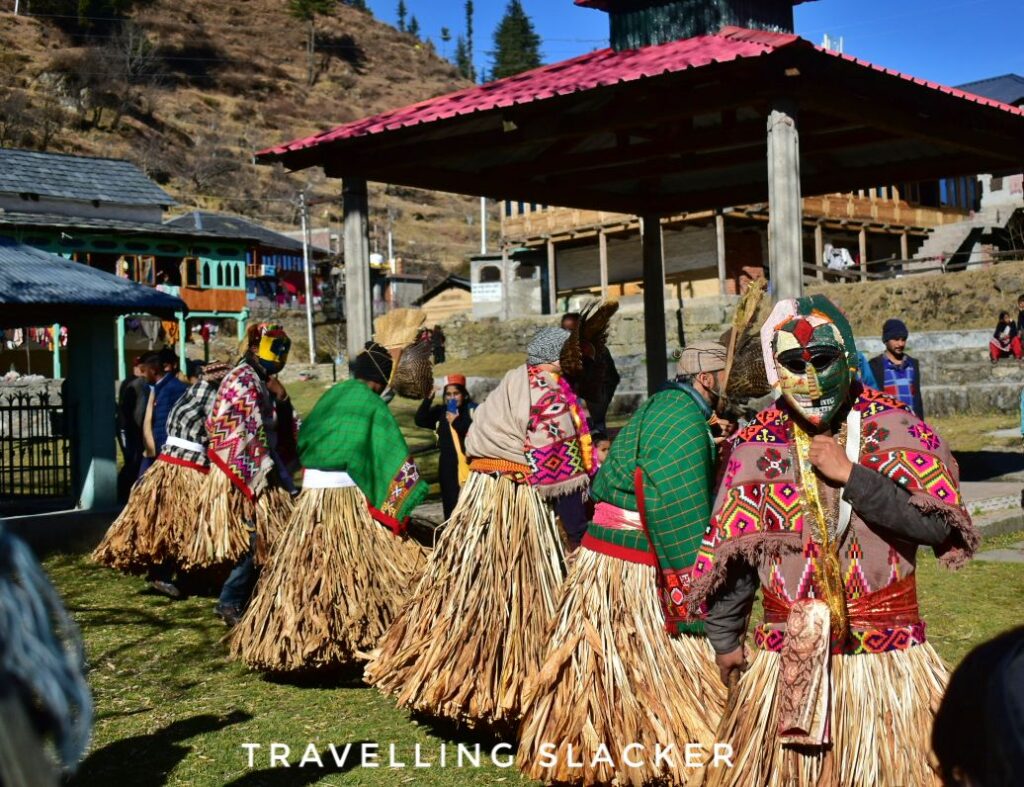

The dance continued for half an hour at the ground and then, after circling around the village for a while, they took an awkward route down the gorge and then started hiking up along a trail, and some visitors also followed.
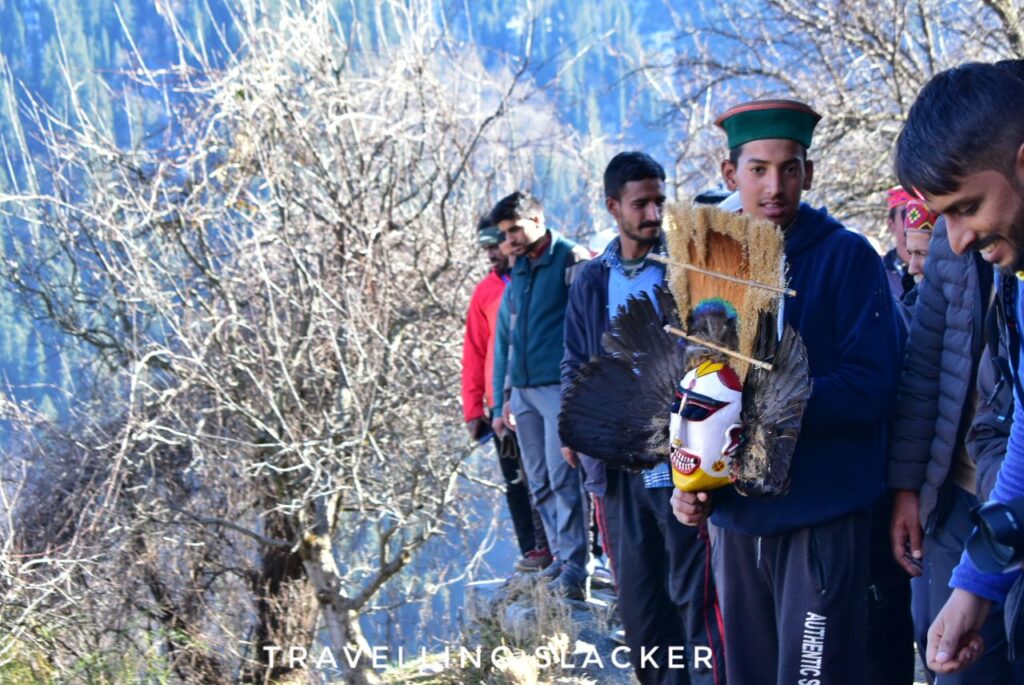
Initially I was reluctant to go for the additional trail. I had already clicked photographs that I needed. But then I noticed that they were climbing to a point where you can get the snowy peaks as the backdrop. So, I quickly changed my mind, huffed and puffed to that point, which was a small plot overlooking the village itself.
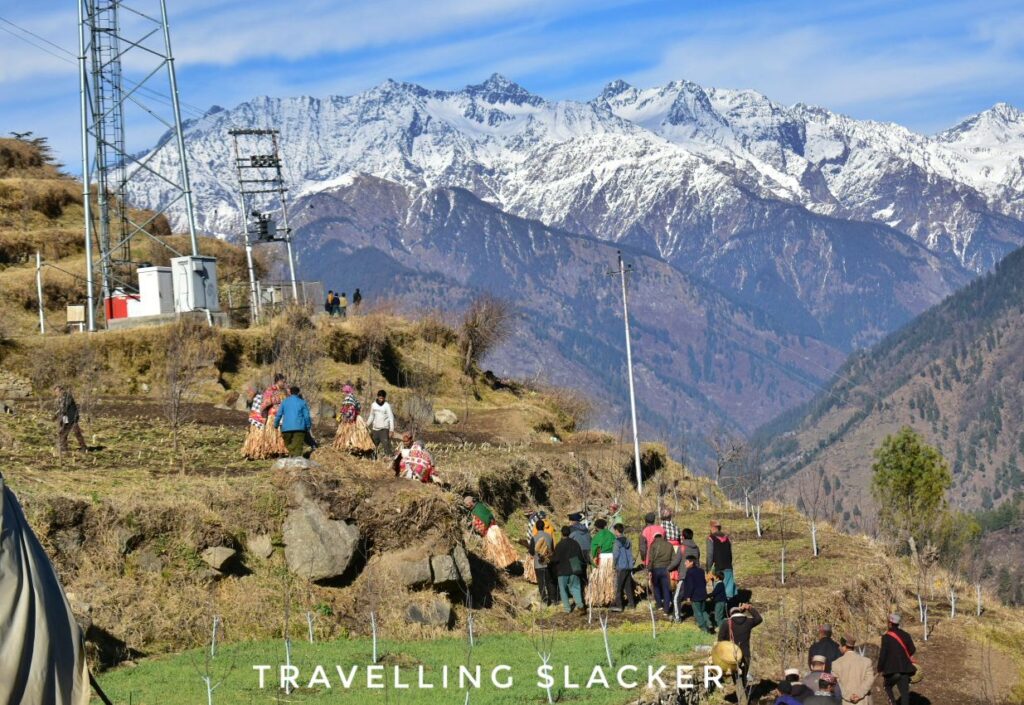
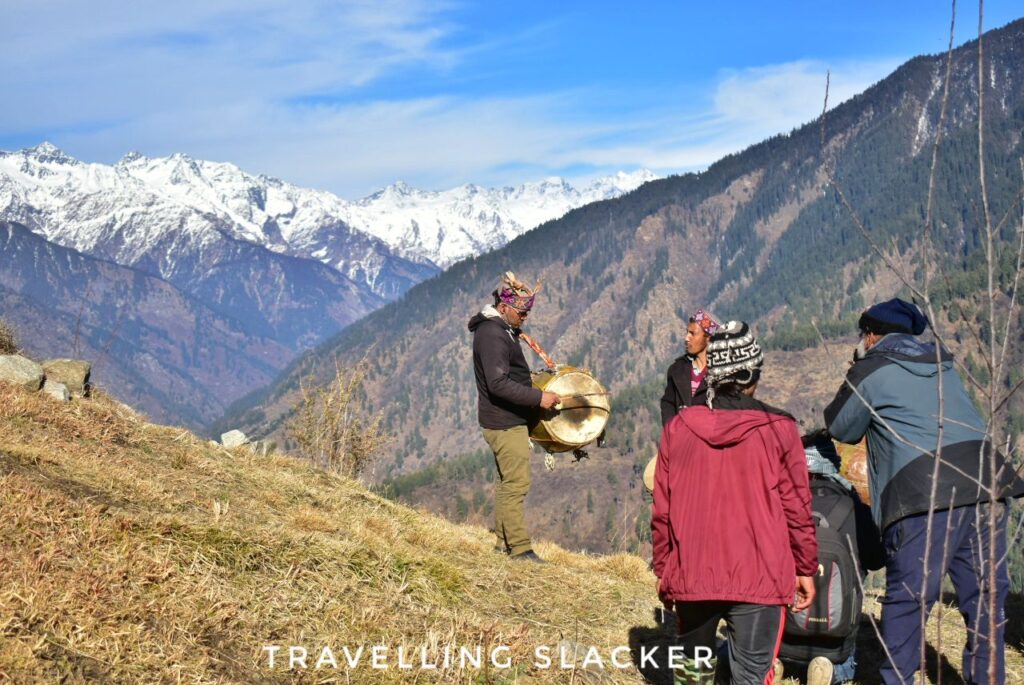
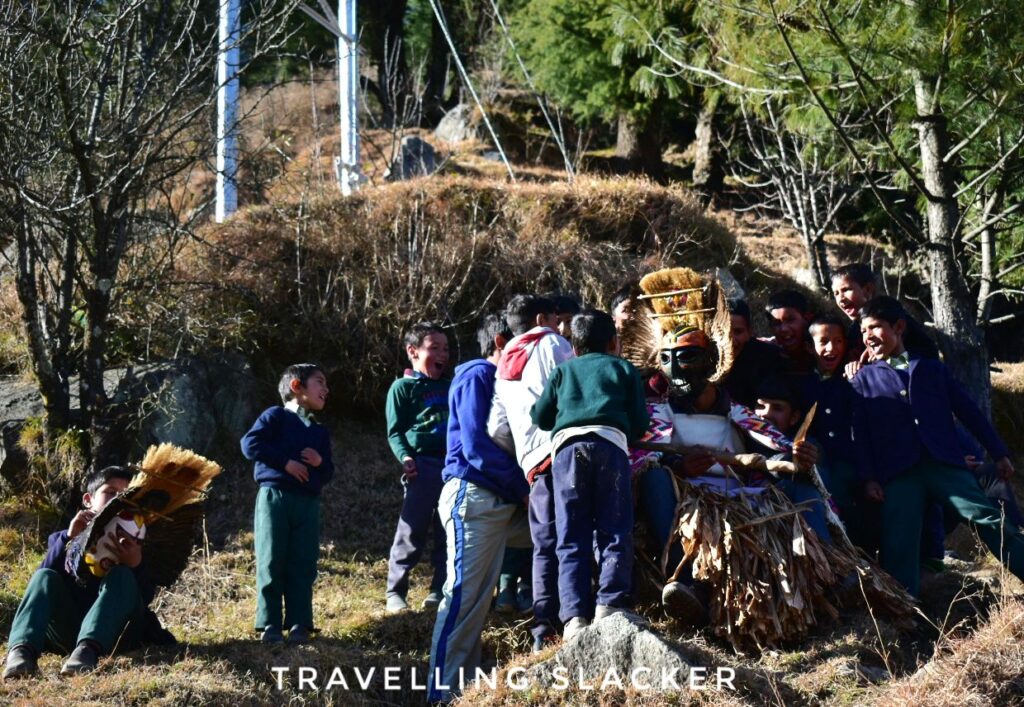
Here I noticed that one of the masked men was being mobbed by children and learnt that he is the fortune teller predicting how the next year would go. Some of the dancers took off the masks at this point but continued to dance while a few choose to rest too. I got the images I needed and then, after sometime, I descended back to the village ground along with the dancers.
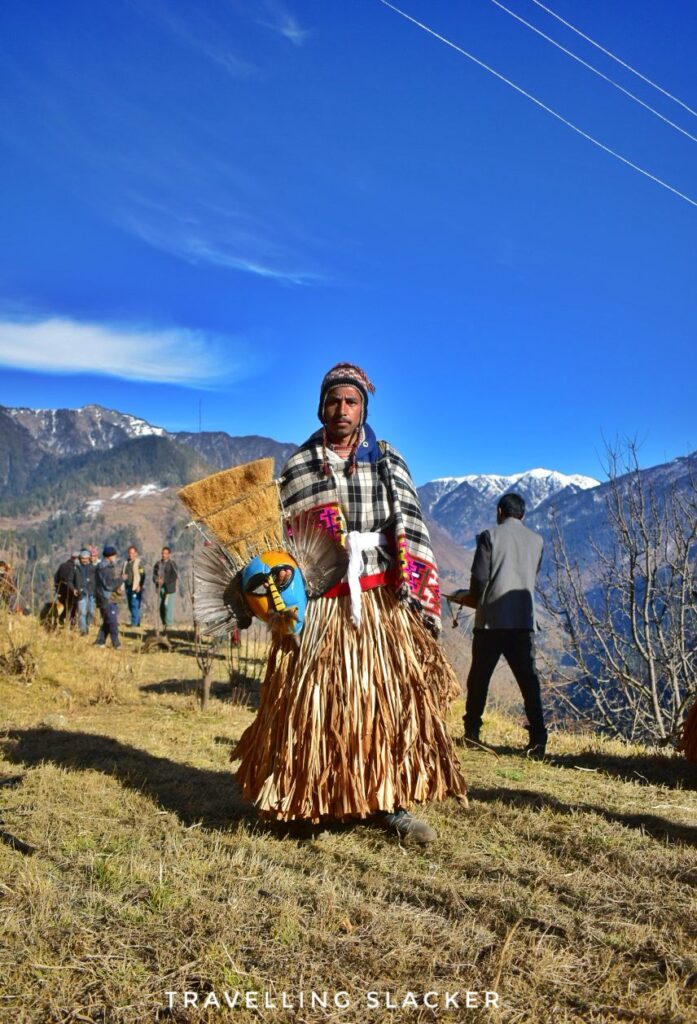

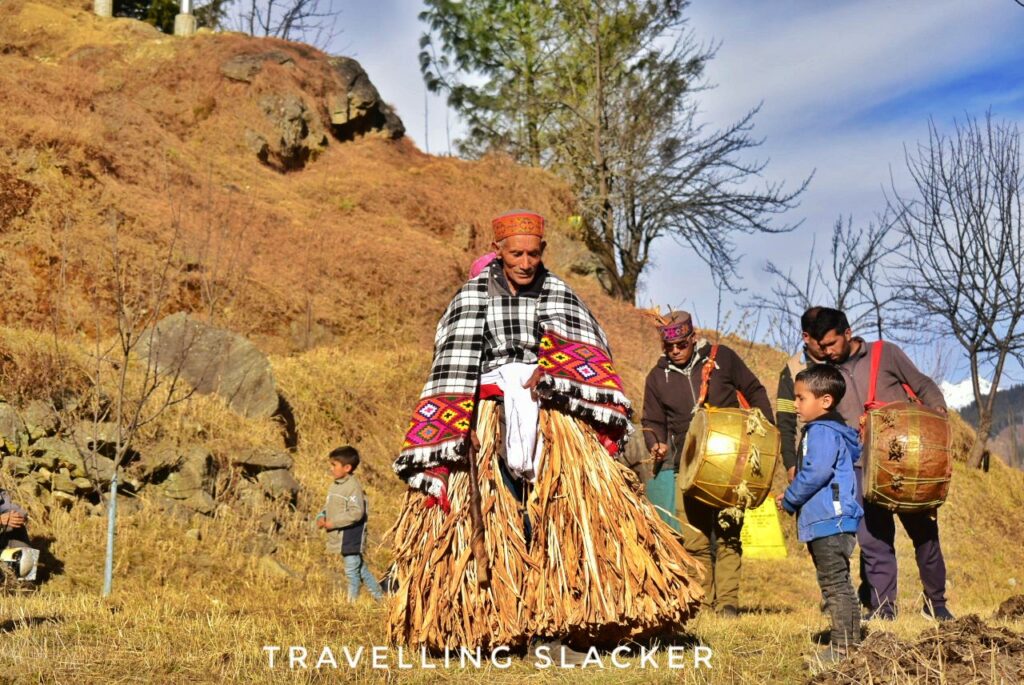
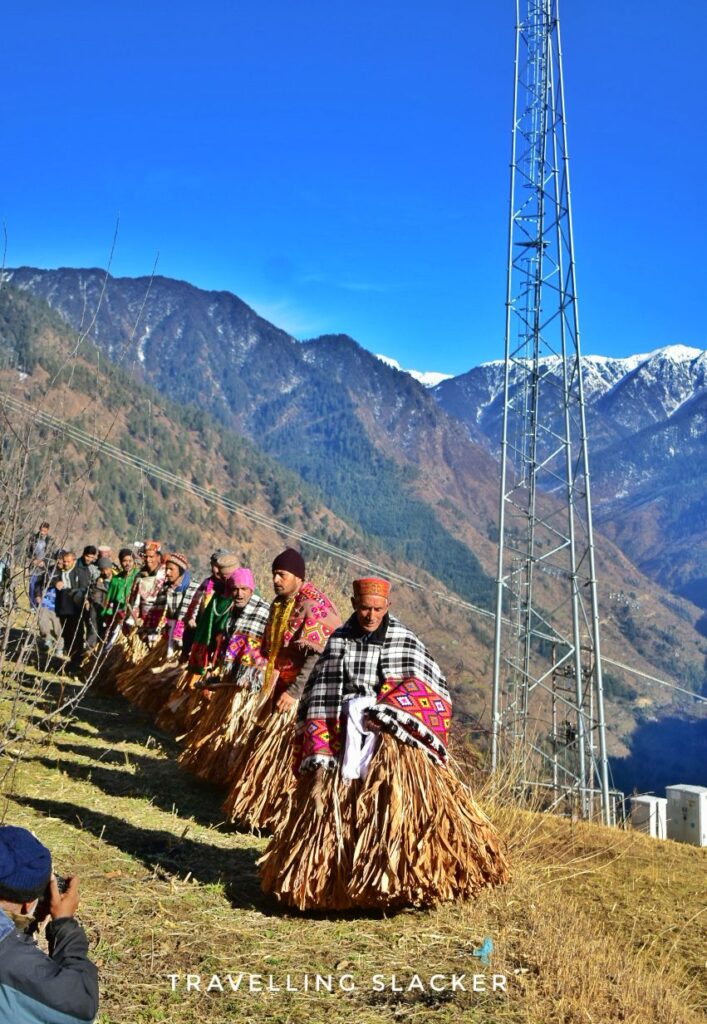
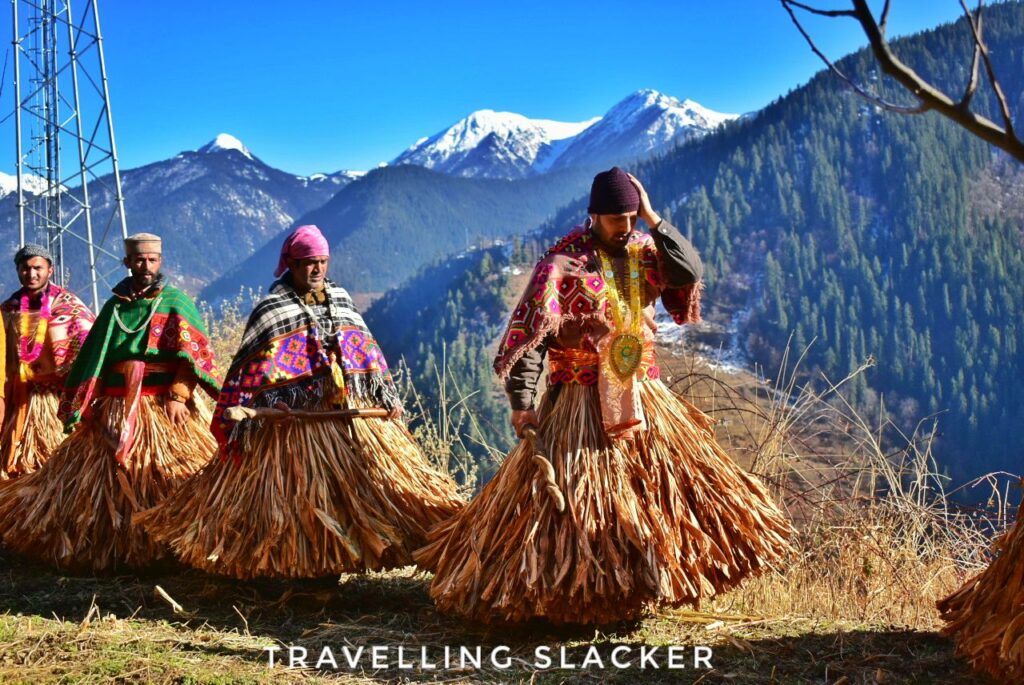
The performance continued there for some more time and I also noted elements of comedy in the enactment of a couple of dancers. The nature of slapstick comedy was strikingly similar to what I noticed in Torgya Festival. Maybe all these practices have some common influence from the ancient times.
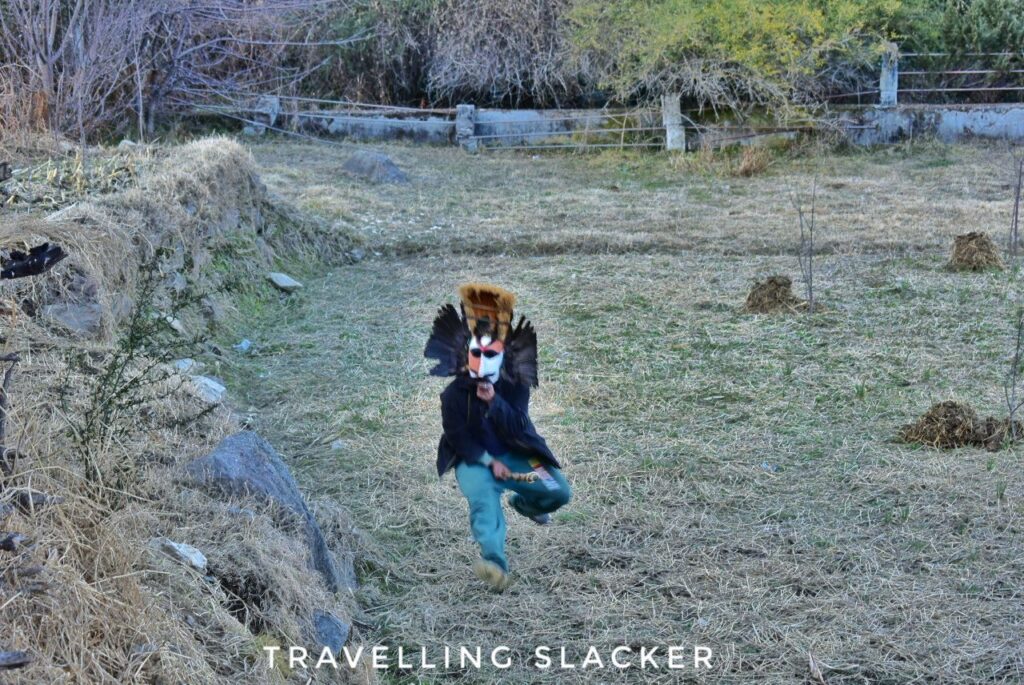
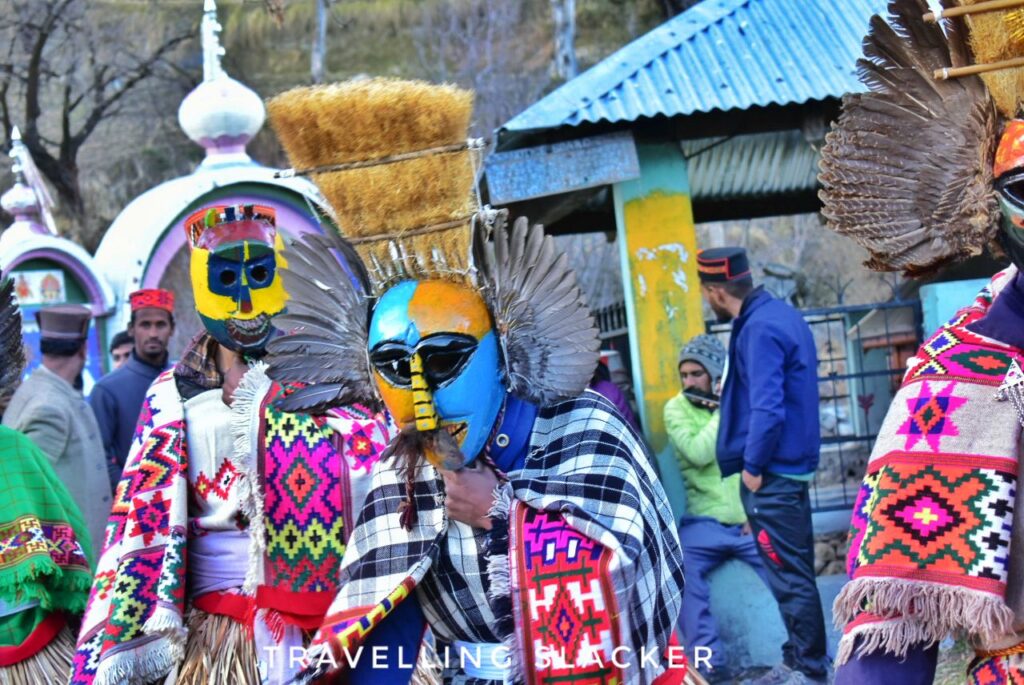
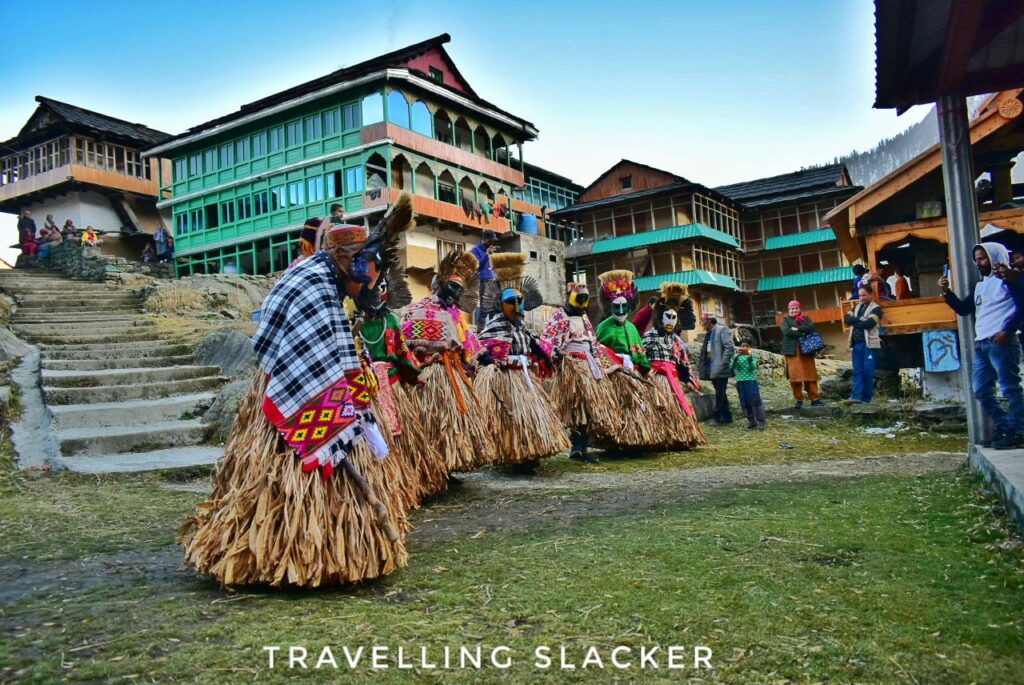
Anyway, the dance eventually ended as it started to get dark. Then I noticed that the dancers were blessing the visitors. This is where you can see that the masked dancers occupy a revered position in the society. You can seek blessings (and give them something in return). I also tried it, a tall and strong looking dancer shook my shoulders powerfully and muttered something. I almost felt like my bones will break but that lasted just a few seconds.
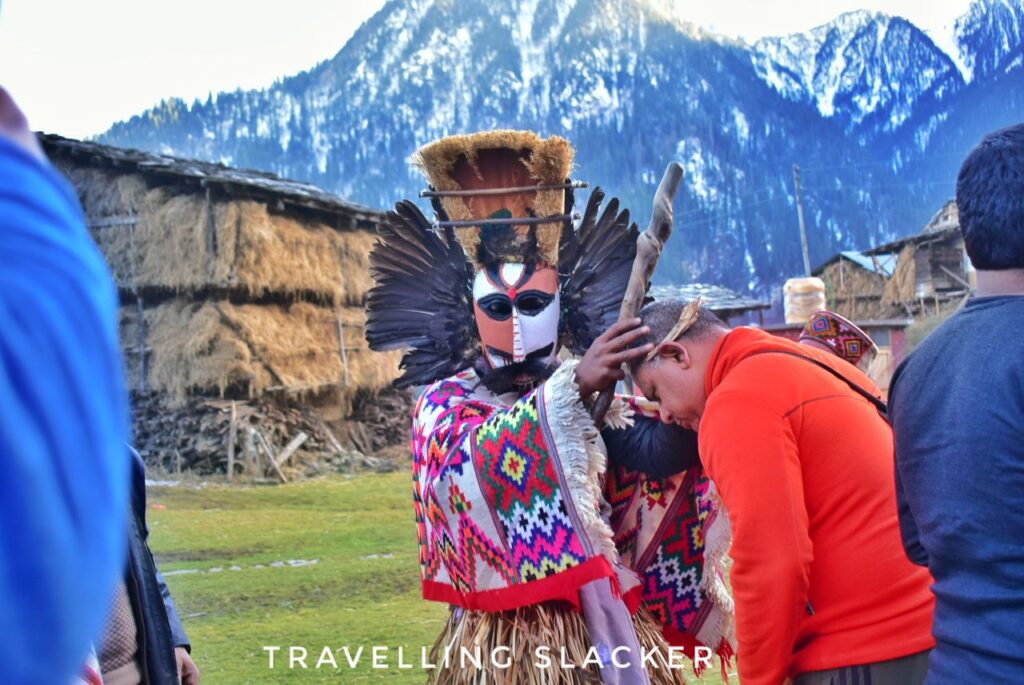
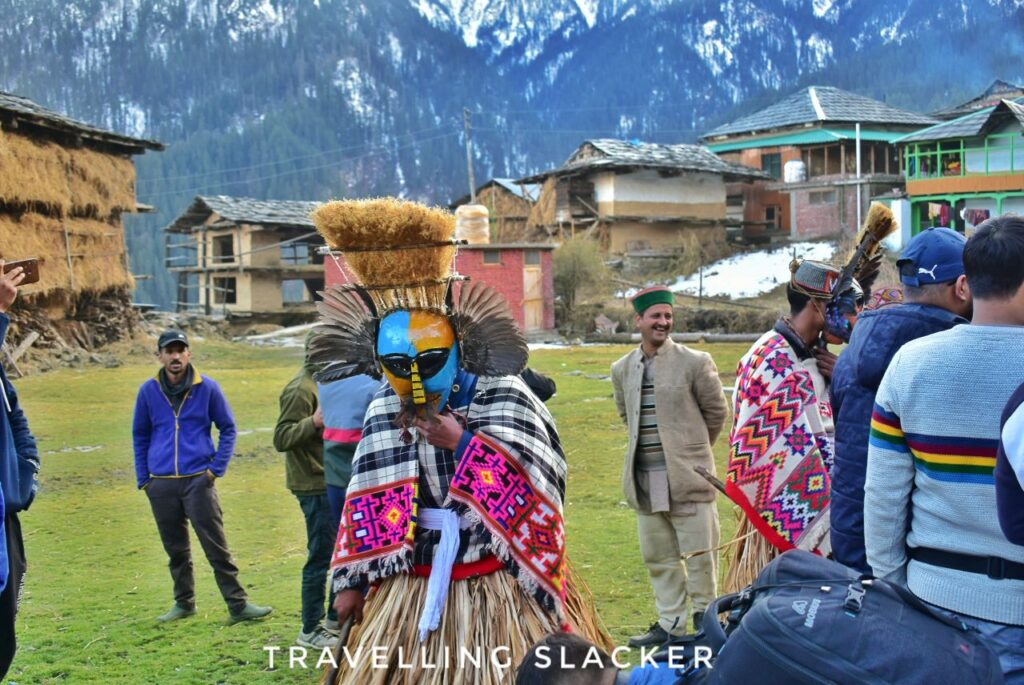
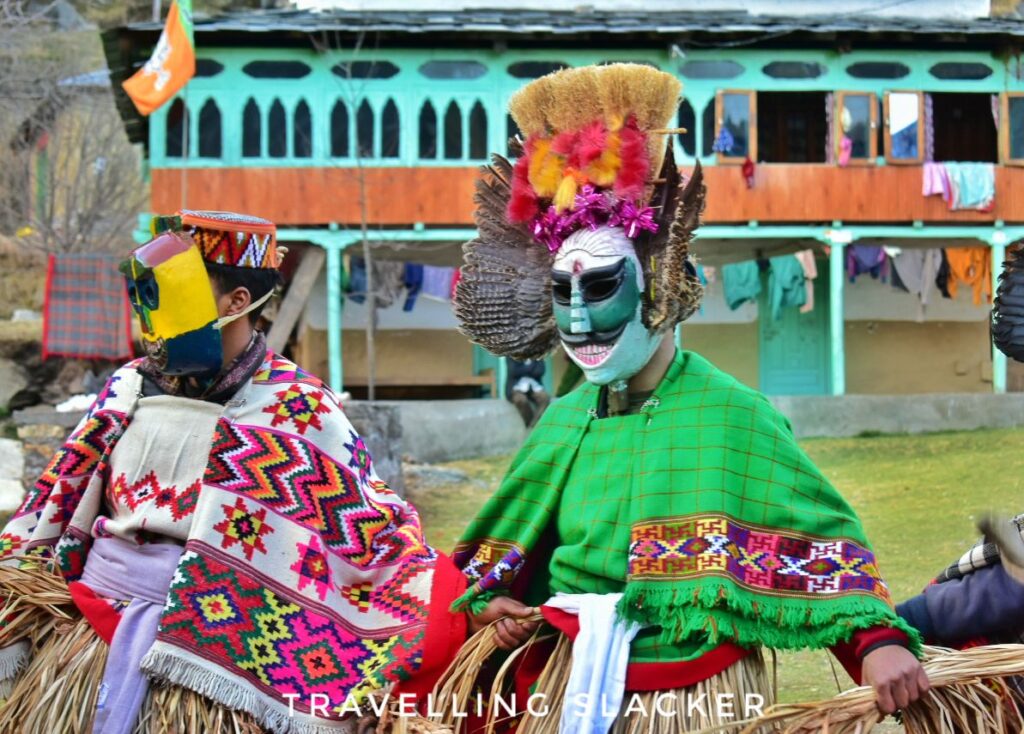
Anyway… That was it for the day. The same program was going to be repeated the next day with more people from neighbouring villages joining in. It was tempting but we decided to move on for other things with limited time at hand. Maybe next time I will try to attend the same in a different village. Have a look the failed video footages below to catch the things I missed out on my stills.
Fagli Festival Guide for visitors
When does Fagli Festival take place?
It usually takes place mid February… (Keep your eyes open between 11 to 18th… With 13-15th being peak dates). Dates may vary from place to place. So, you’ll have to find out through local contacts or keep an eye on social media announcements of relevant groups and pages that focus on such things.
Where does Fagli Fetsival Take place?
It takes place accross various villages in Tirthan Valley and Banjar Valley (suprisingly I am not aware of it in neighbouring Sainj Valley). So, it is usually found in the inner Seraj region that also is a part of the Great Himalayan National Park ecozone. I attended it in Sharchi Village, deep inside Tirthan Valley. If the location confusing then you must read my detailed Tirthan Valley Guide. You can also catch it in some villages near Jibhi, which is easier to reach for non-hardcore tourists.
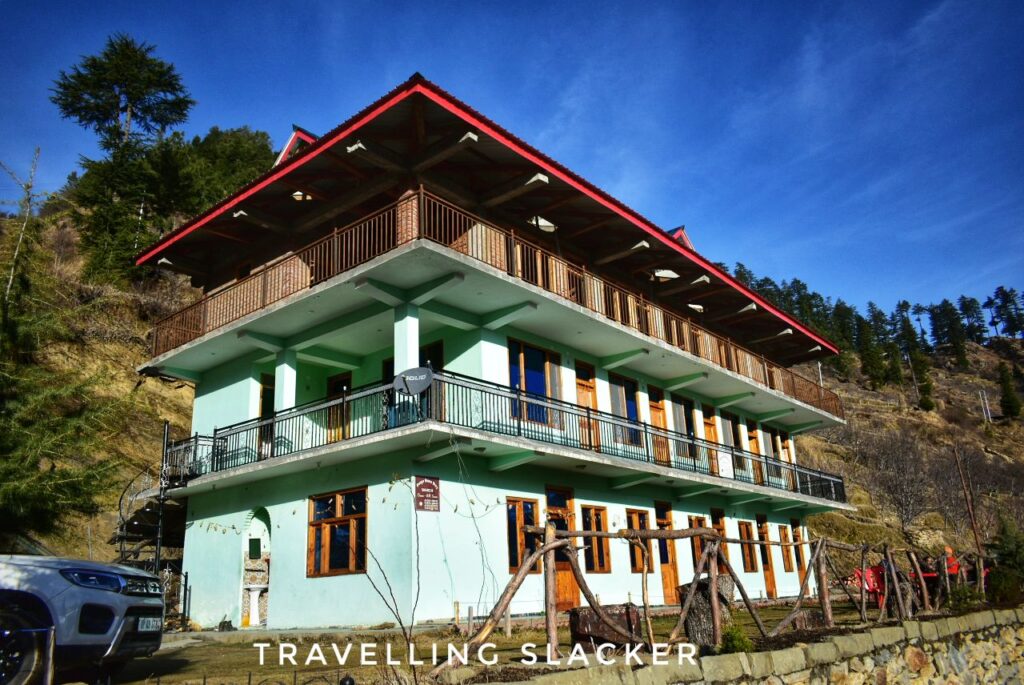
It also takes place in Malana in Parvati Valley. However, that maybe a bit different in terms of mythology and rituals although mask dances are still there. The people in Sharchi opined that the one in Malana is different from theirs.
How to attend Phagli Festival?
You just have to reach one of these villages on the right date. I preferred Sharchi because although it is far, I could get a stay in the village just near the festival ground. So, it was convenient.
What else to keep in mind?
Just be respectful while shooting videos and photographs. Don’t get too close to dancers while they are dancing. These are supposed to be sacred rituals.

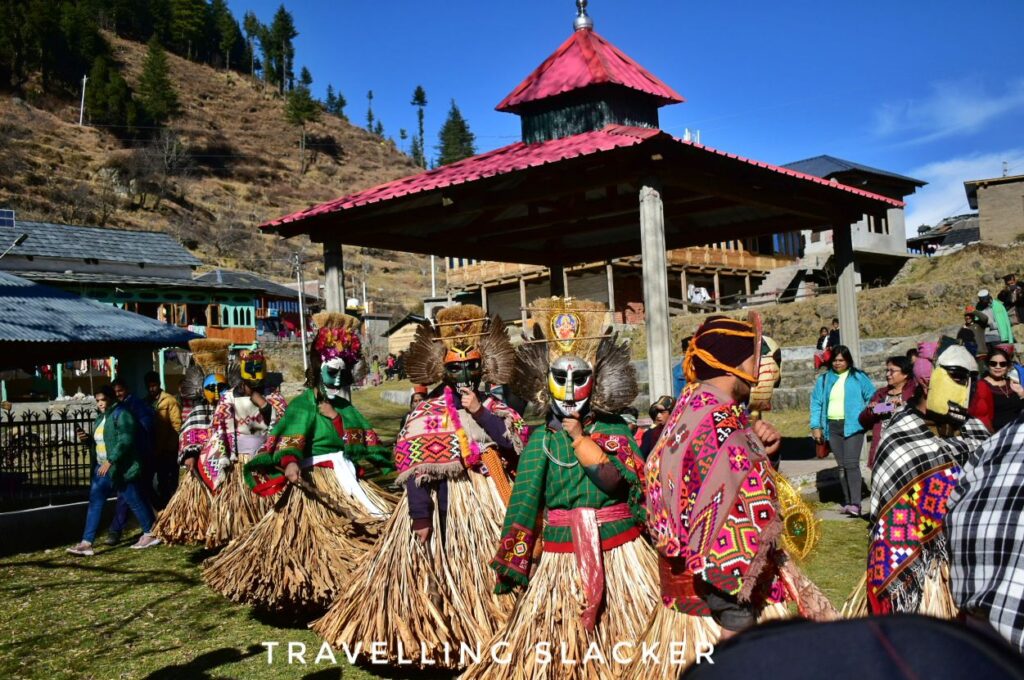

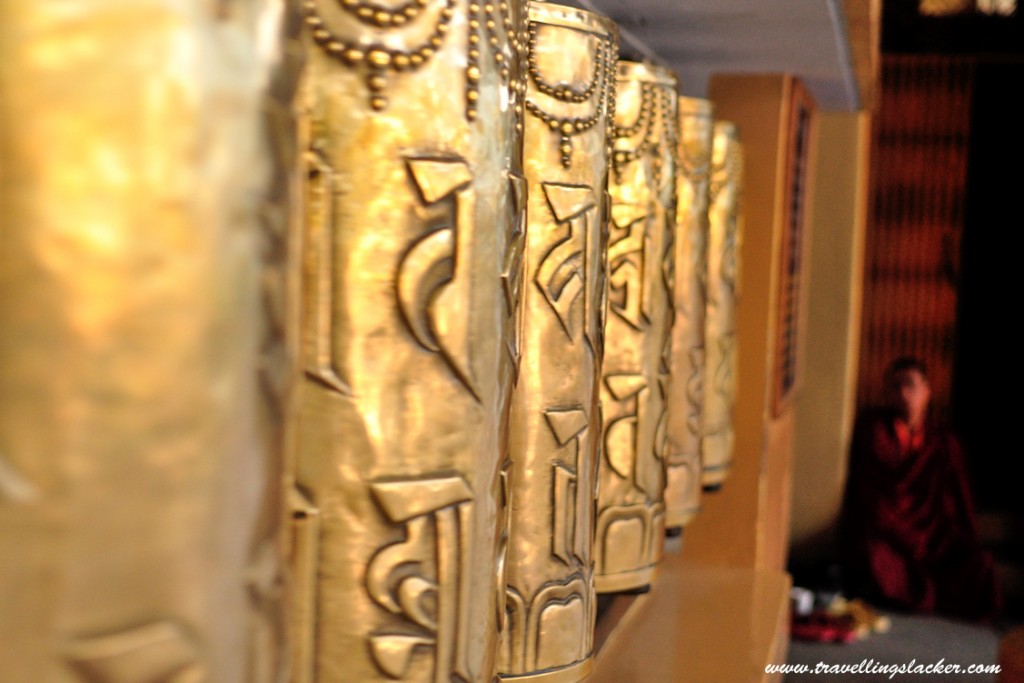
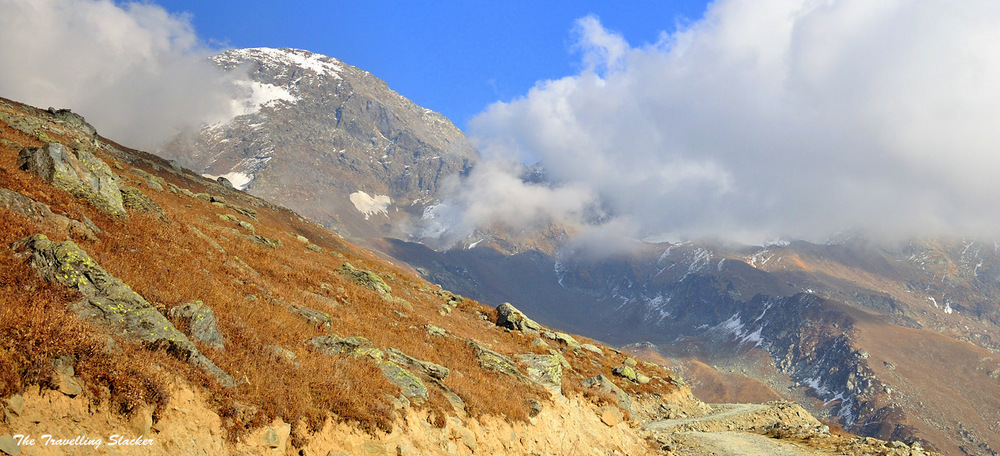
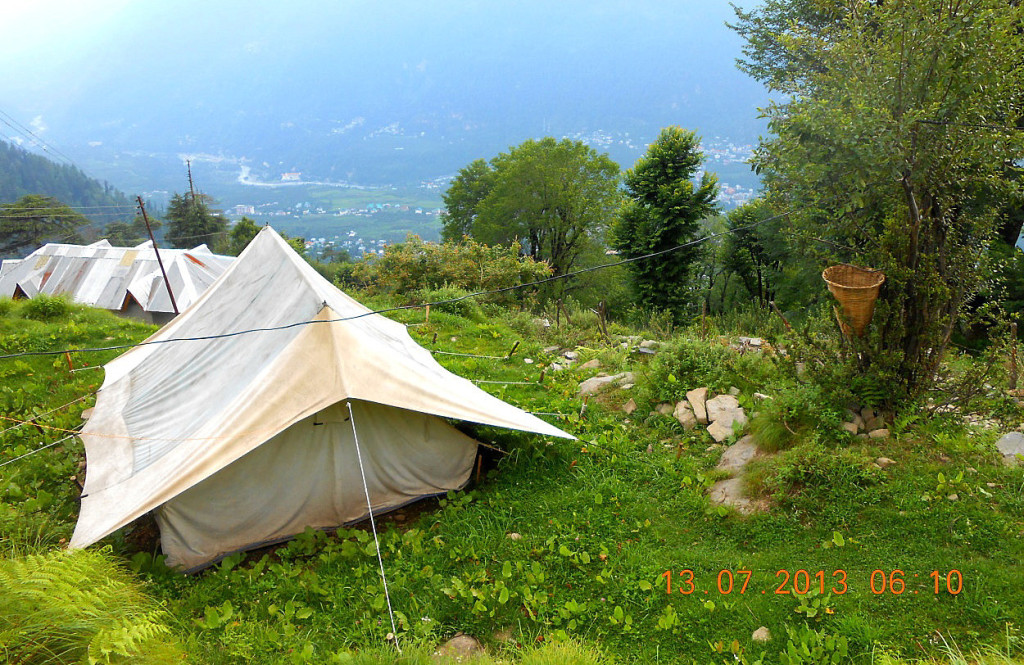
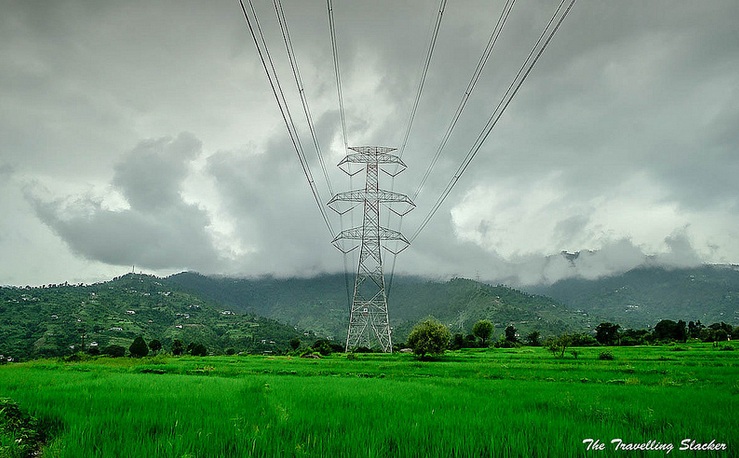
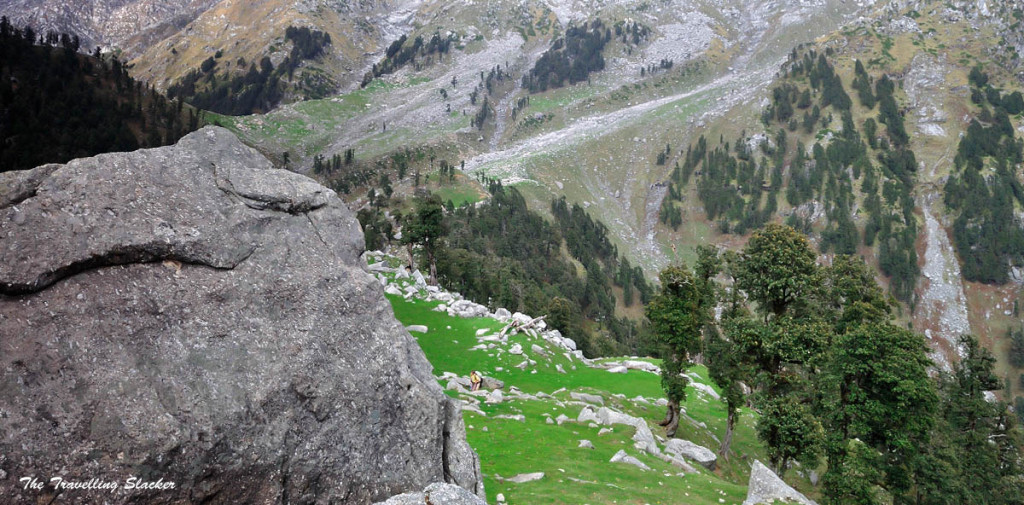
Interesting read. So, this is where you went after our trip to Jajpur. Nice.